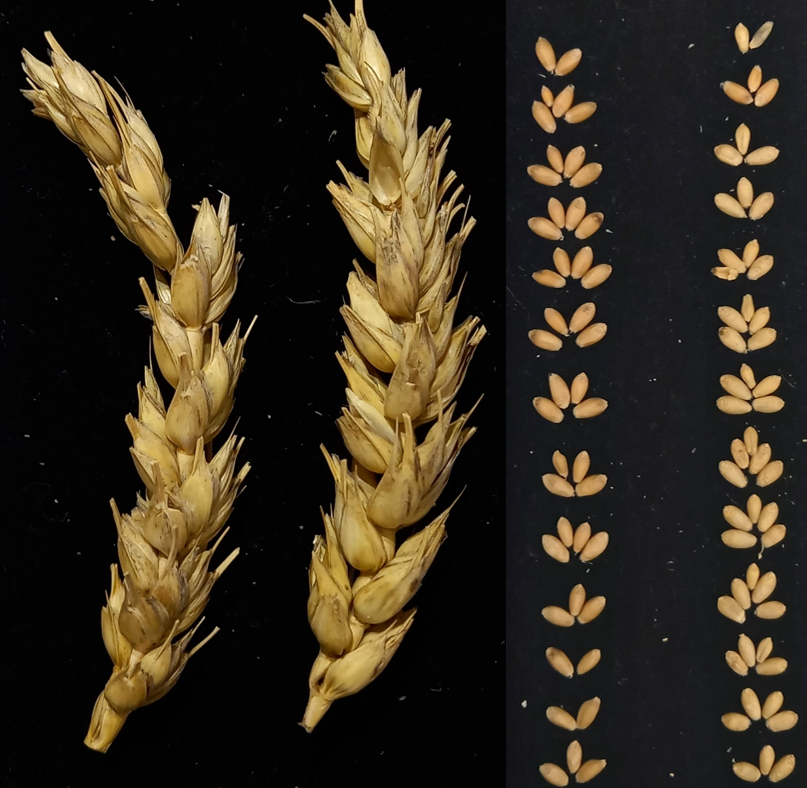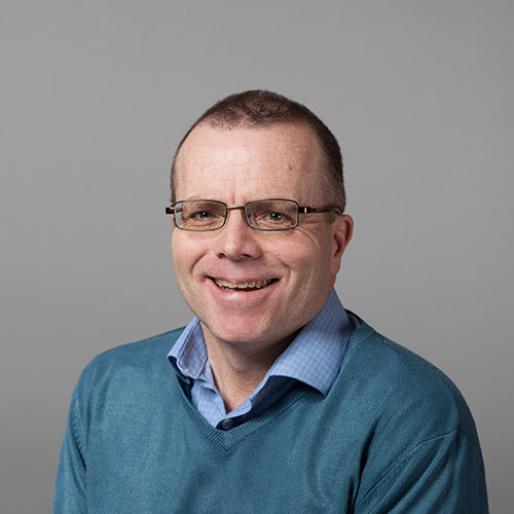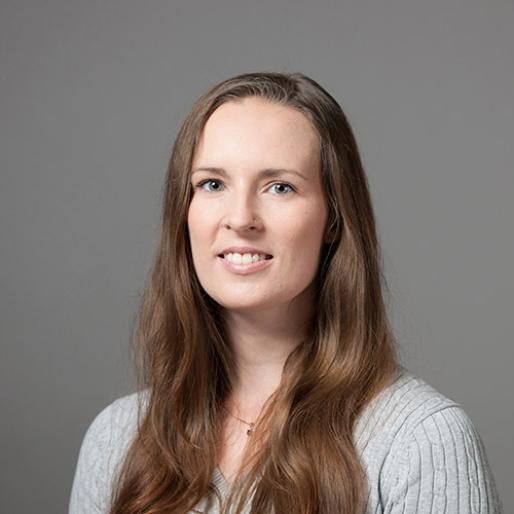The big picture: using wildflower strips for pest control
Turning scientific discoveries into commercial solutions often takes many years, especially in agriculture where extensive field trials are needed to prove real-world impact. Such a process has now led to the launch of SugaROx, a spinout company formed in 2021 from Rothamsted Research and the University of Oxford.
SugaROx was founded by Dr. Matthew Paul, Dr. Cara Griffiths, and Professor Ben Davis, following a series of research investments, including key funding from the International Wheat Yield Partnership (IWYP). The company’s science builds directly on discoveries made during the IWYP-supported project “Transforming Yield through Source-Sink Synchronization” (2018–2021), led by Matthew Paul, Matthew Reynolds, and Ben Davis.
The project focused on the signaling molecule trehalose 6-phosphate (T6P), known to boost starch biosynthesis in plants. The research team hypothesised that increasing T6P levels in developing wheat grain at just the right time could significantly enhance yield.
At the IWYP Hub at CIMMYT in Mexico, scientists tested this theory by spraying spring wheat varieties with a light-activated, permeable precursor of T6P ten days after anthesis. The treatment was converted to active T6P by sunlight and resulted in clear yield increases. Similar trials in Argentina, conducted with INTA, confirmed the effects.
The work culminated in a publication in Nature Biotechnology (Griffiths, C.A. et al., 2025) involving 14 authors from Rothamsted, Oxford, CIMMYT, and INTA. These results provided robust scientific validation and the foundation for commercial development.
The multi-site field trials and molecular studies revealed several unprecedented findings:
Breaking the yield trade-off: Increases in both grain number and grain size were achieved simultaneously—overcoming a long-standing limitation in wheat yield potential.

Supported by IWYP and other funders, the Rothamsted–Oxford team also developed a cost-effective and scalable process for producing the T6P precursor. This key step made it possible to move from proof of concept to practical application, paving the way for the formation of SugaROx.
The company’s technology aims to deliver higher crop yields without additional fertilizer, contributing to both food security and sustainability. Because the chemical route to yield enhancement is largely independent of wheat variety, it can be scaled quickly across diverse farming systems, including those affected by drought.
For IWYP, SugaROx represents a clear example of how strategic investment can accelerate the transition from discovery science to real-world solutions.
“It’s exciting to see fundamental plant science being turned into a practical technology that can make a real difference for farmers,” said Dr. Matthew Paul, Lead Plant Scientist at Rothamsted Research. “Through collaboration with IWYP, we were able to take an idea about a key signaling molecule in plants and turn it into a tangible product that improves yield sustainably.”
While the formation of SugaROx marks an immediate success, the longer-term impact could be far greater—higher wheat yields and improved food resilience worldwide.
Article in the International Wheat Yield Partnership can be found here.

Plant Scientist

Molecular Biologist - Biochemist
Rothamsted Research is the longest-running agricultural research institute in the world. We work from gene to field with a proud history of ground-breaking
discoveries in areas as diverse as crop management, statistical interpretation and soil health. Our founders, in 1843, were the pioneers of modern
agriculture, and we are known for our imaginative science and our collaborative approach to developing innovative farm practice.
Through independent research, we make significant contributions to improving agri-food systems in the UK and internationally, with
economic impact estimated to exceed £3 bn in annual contribution to the UK economy. Our strength lies in our systems approach, which combines strategic research,
interdisciplinary teams and multiple partnerships.
Rothamsted is home to three unique National Bioscience Research Infrastructures which are open to researchers from all over the world:
The Long-Term Experiments,
Rothamsted Insect Survey and the
North Wyke Farm Platform.
We are strategically funded by the Biotechnology and Biological Sciences Research Council (BBSRC), with additional support from other national and
international funding streams, and from industry. We are also supported by the Lawes Agricultural Trust (LAT).
The Biotechnology and Biological Sciences Research Council is part of UK Research and Innovation, a non-departmental public body funded by a grant-in-aid
from the UK government.
BBSRC invests to push back the frontiers of biology and deliver a healthy, prosperous and sustainable future. Through our investments, we build and support a vibrant,
dynamic and inclusive community which delivers ground-breaking discoveries and develops bio-based solutions that contribute to tackling global challenges,
such as sustainable food production, climate change, and healthy ageing.
As part of UK Research and Innovation (UKRI), we not only play a pivotal role in fostering connections that enable the UK’s world-class research and innovation system
to flourish – we also have a responsibility to enable the creation of a research culture that is diverse, resilient, and engaged.
BBSRC proudly forges interdisciplinary collaborations where excellent bioscience has a fundamental role. We pioneer approaches that enhance the equality, diversity,
and inclusion of talent by investing in people, infrastructure, technologies, and partnerships on a global scale.
The Lawes Agricultural Trust, established in 1889 by Sir John Bennet Lawes, supports Rothamsted Research’s national and international agricultural science through the provision of land, facilities and funding. LAT, a charitable trust, owns the estates at Harpenden and Broom's Barn, including many of the buildings used by Rothamsted Research. LAT provides an annual research grant to the Director, accommodation for nearly 200 people, and support for fellowships for young scientists from developing countries. LAT also makes capital grants to help modernise facilities at Rothamsted, or invests in new buildings.